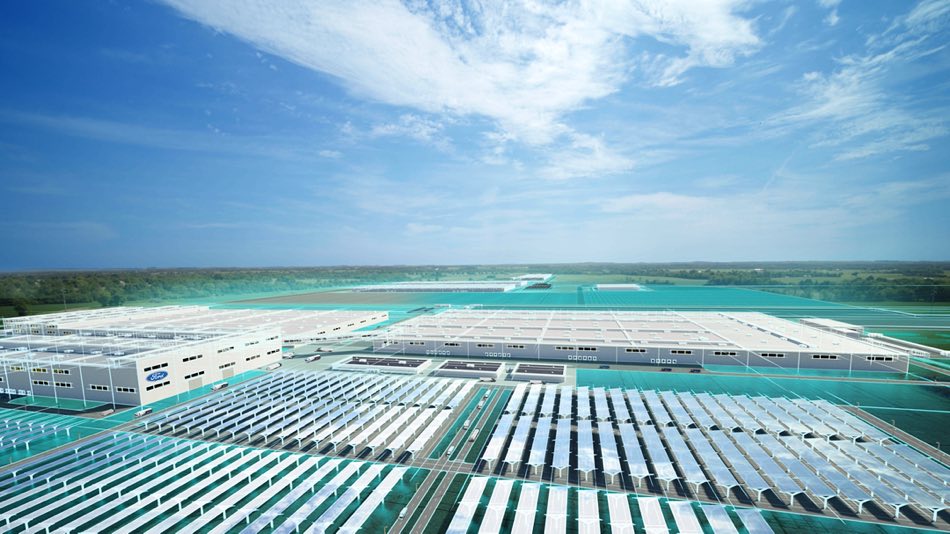In the 2020s, it is anticipated that car manufacturers will adopt electric mobility more extensively. Specifically, the 20 largest automotive manufacturers, who were responsible for nearly 90% of all new cars produced, have declared their plans to enhance the availability of electric vehicle models and increase production. Keep reading to discover the electrification plans of each major internal combustion auto manufacturer.
American Honda Motor Company (Honda and Acura)
American Honda encompasses the Acura and Honda brands and has set a goal to transition all its sales to electric (EV) vehicles by 2040. By 2030, 40% of their sales will be EVs, and by 2035, this number will increase to 80%. To achieve this, American Honda is dedicating $40 billion towards EV research and development. Additionally, they are partnering with General Motors to utilize their Ultium batteries. The company plans to launch the 2024 Acura ZDX EV and introduce more electric models in the following years.
BMW Group (BMW, Mini, and Rolls Royce)
BMW is committed to transitioning to electric vehicles and has already made significant investments towards this goal. By 2030, BMW plans for half of its sales to come from battery electric vehicles. The current lineup of BMW’s electric vehicles includes the i4, iX, i7, and an upcoming BMW Neue Klasse model. To support this transition, BMW has invested $1.7 billion to build EVs in the USA, with $1 billion allocated towards electric vehicle production at its Spartanburg, South Carolina plant and $700 million towards a new battery assembly facility. Mini and Rolls Royce are both under the BMW Group. The Mini Electric is already available, and the Rolls Royce Spectre is set to be available in 2024.
Ford Motor Company (Ford and Lincoln)
Ford has committed to investing $22 billion towards electrification by 2025, intending to have 40% to 50% of its global vehicle volume fully electric by 2030. In line with this, Ford is constructing an EV battery facility in Kentucky to power Ford and Lincoln EVs. Ford currently offers a range of electric vehicles, including the Lightning F-150, Mustang Mach-E, and E-Transit commercial van.
General Motors (Buick, Cadillac, Chevrolet, GMC, and Hummer)
By 2035, General Motors (GM) will exclusively produce electric vehicles, having phased out gas vehicles. To achieve this goal, GM is investing $35 billion globally by 2025 for the development of electric vehicles. The current lineup of GM’s electric vehicles includes the Chevrolet Bolt, Cadillac LYRIQ, Cadillac CELESTIQ, and the Hummer pickup and SUV. Additionally, GM is planning to launch the Chevrolet Silverado EV, Chevrolet Blazer EV, and Chevrolet Equinox EV.
Hyundai Motor Group (Hyundai, Kia, and Genesis)
In order to achieve its goal of being a top three EV maker by 2030, Hyundai Motors plans to invest $18 billion in electric vehicles. They aim to have a total of 31 EV models in their lineup, to produce 3.64 million EVs worldwide by 2030. Hyundai’s current EV models include the IONIQ 5, IONIQ6, and Kona Electric, while Kia has the EV6 and Niro EV and is working on the EV9. The EV Genesis lineup includes the Electrified G80, GV60, and Electrified GV70, with more models in development.
Jaguar Land Rover (Jaguar and Land Rover)
Tata, a large Indian corporation, owns Jaguar Land Rover. Land Rover intends to release a new electric vehicle within the next year, and by 2030, Jaguar plans to offer electric vehicle options for all their models. To electrify their fleet, Jaguar Land Rover has allocated over $16 billion for the next five years. Currently, the only electric vehicle model offered by Jaguar is the I-pace.
Mercedes Benz USA
Starting in 2025, Mercedes-Benz will only produce electric vehicle models. To support this shift, the company plans to invest $47 billion towards electrification. Currently, Mercedes offers a range of electric vehicles, including the EQS sedan, EQS SUV, and EQB.
Nissan North America (Nissan and Infiniti)
Nissan has been involved in the electric vehicle market for a long time, starting with the Nissan Leaf. They are now committed to expanding their electrification efforts with 15 new EVs. To achieve this, the company is investing $18 billion and aims to have 40% of its U.S sales come from EVs by the year 2030. At present, Nissan’s electric vehicle lineup includes the Leaf and ARIYA.
Toyota Motor Sales (Lexus and Toyota)
Toyota Motor Sales comprises both Lexus and Toyota. While Toyota was quick to introduce the Prius hybrid, it has been slow to adopt battery-electric vehicles. However, the company has recently committed $70 billion to electrification and plans to manufacture 30 electric vehicles by the end of the decade. Currently, the Toyota BZ4X and the Lexus RZ 450e are the only battery electric options available.
Volkswagen Group (Audi, Bentley, Bugatti, Lamborghini, Porsche, and Volkswagen)
Did you know that the Volkswagen group consists of well-known brands such as Audi, Bentley, Bugatti, Lamborghini, Porsche, and Volkswagen? In the next decade, the Volkswagen group is planning to launch more than 70 new electric vehicles (EVs) and invest $95 billion in electrification across all its brands. Currently, Audi offers an impressive range of EVs, such as the e-Tron GT, e-Tron GTR, e-Tron, Q4 e-Tron, and Q8 e-Tron, and is soon introducing the SQ8 e-Tron. Likewise, Porsche has the Taycan, and Volkswagen has the ID.4, which are both great options for anyone looking for an EV.
If you want to explore and choose from the latest electric vehicles, check out Electric Driver. This website can guide you in finding the ideal electric vehicle that matches your requirements and preferences. You can also obtain information on EV charging, estimated driving costs, and emissions based on the model and location. Visit Electric Driver to know more.
